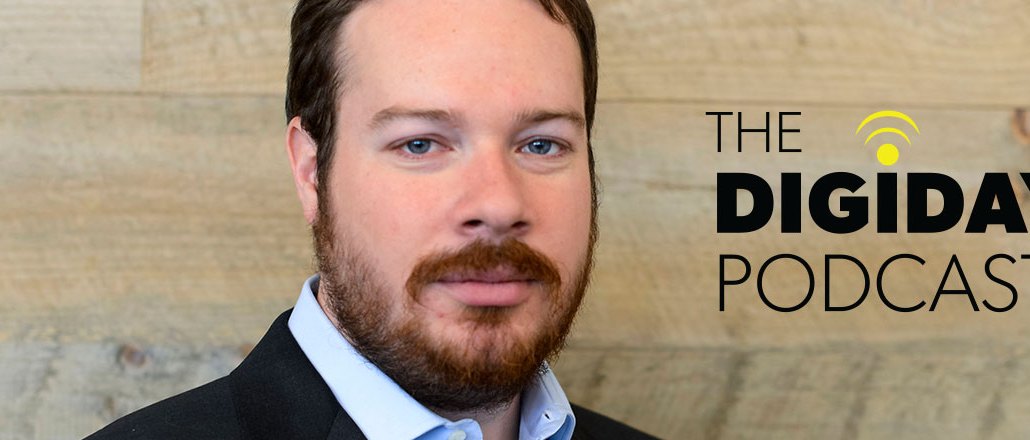Save 50% on a 3-month Digiday+ membership. Ends Dec 5.
Bustle’s Bryan Goldberg: Business Insider proved critics wrong on aggregation

The past few months have been dizzying for big digital media upstarts, with BuzzFeed and Vox Media earning sky-high valuations and, just this week, Business Insider selling to Axel Springer in a deal valuing BI at near $450 million.
They represent some amount of panic by traditional media companies behind all three deals, but they also represent a vindication for the early wave of digital media companies that had legions of doubters, according to Bryan Goldberg, co-founder of Bleacher Report and founder of millennial women’s site Bustle.
“I feel a sense of vindication for everyone that was part of that class of 2007,” he said on this week’s Digiday Podcast. “We couldn’t convince venture capitalists this was a real business. There were only a quarter as many investors then as there are today, and three-quarters of those investors wouldn’t even look at these deals. Investors didn’t want to touch these deals because they hadn’t seen any exits yet.”
Some edited highlights from the discussion:
Media purists missed the boat on aggregation.
Business Insider and Bleacher Report were both knocked for a reliance on aggregating the reporting of others. In the end, however, that proved the right strategy, according to Goldberg, because a modern media property needs to lean on curation.
Ad position: web_incontent_pos1
“People just didn’t get it. They didn’t understand the power of curation; they didn’t understand in an era of so much content out there that needs to be organized that curation was as critical a part of the media value proposition as the writing itself.”
BI’s price tag makes a lot of sense.
Axel Springer’s deal to buy BI raised some eyebrows for the valuation, which works out to about nine times 2015 revenue. But that’s misleading, Goldberg said, since BI is growing revenue 50 percent per year, which would put its 2016 revenue at $70 million, comfortably within a six-times-revenue figure typical for digital media acquisitions.
“It’s the fair number for a company at their stage,” he said. “Some look at it and say this can be bigger than The Wall Street Journal in three or four years; it’s a bargain. Some look at it and say, ‘I don’t like Business Insider, so I don’t like this deal.’ These numbers are very transparent. Whatever questions people have of this deal, the valuation shouldn’t be one.”
Traditional media companies should be panicking, but there’s time to catch up.
Millennials have irrevocably changed consumption patterns, and traditional media finally realizes it needs to catch up. When young people graduate from college, the first thing they do isn’t sign up for cable, Goldberg pointed out. That’s the fear behind the hit media stocks took this summer, and it explains in part the big bets made by NBCUniversal in BuzzFeed and Vox Media.
Young people aren’t consuming the way they were even three or four years ago,” Goldberg said. “They should be panicking right now. They do realize things are changing. The Disneys of the world were caught off guard by how quickly TV is changing. But they do have time to address it.”
Ad position: web_incontent_pos2
Bustle has 40 million visitors a month after two years.
Goldberg got his share of grief over the launch of a Bustle, a site focused on young women created by a man who used to run a sports site. But the thesis was simple: hire young women to create content that resonates with young women.
“I’m focusing on the pieces I know,” he said. “It’s enhancing the things I’m good at: the advertising, the technology, the financing — the things that aren’t deep in the editorial. This place has gotten where it is by me trusting the editors 100 percent.”
Ad blocking isn’t a big problem for top publishers.
Despite much hand-wringing about the rise of ad blockers, they’re not a big threat to big publishers that can craft sophisticated native integrations. Instead, they’re mostly a threat to smaller publishers.
“We’re not seeing any meaningful, measurable impact,” he said. ‘Will there be some impact? Maybe a small one. It’s probably not going to hit the bigger companies that can build out high-quality native products. In fact, it probably benefits the Bustles, BuzzFeeds and Voxs of the world who can build these higher-quality, basically unblockable native products.”
Podcast edited by: Tanya Dua
More in Media

What publishers are wishing for this holiday season: End AI scraping and determine AI-powered audience value
Publishers want a fair, structured, regulated AI environment and they also want to define what the next decade of audience metrics looks like.

Digiday+ Research Subscription Index 2025: Subscription strategies from Bloomberg, The New York Times, Vox and others
Digiday’s third annual Subscription Index examines and measures publishers’ subscription strategies to identify common approaches and key tactics among Bloomberg, The New York Times, Vox and others.

From lawsuits to lobbying: How publishers are fighting AI
We may be closing out 2025, but publishers aren’t retreating from the battle of AI search — some are escalating it, and they expect the fight to stretch deep into 2026.
Ad position: web_bfu